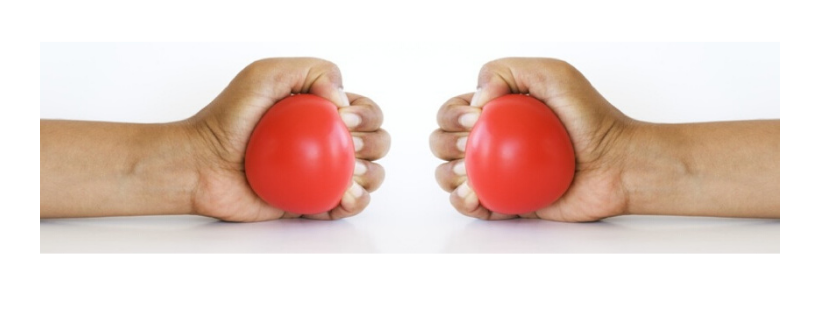STRESS: Symptoms, Causes and Finding Relief

Stress is something all of us can relate to and although stress is often associated with negative connotations, some stress is necessary and helpful for us to respond appropriately in certain situations.
The stress response is part of humankind’s innate response to danger and in past times was triggered for survival purposes such as running away from a dangerous animal or escaping a life-threatening situation. Over time the human stress response has adapted to changed stressors which has resulted in the stress response being triggered by events and situations that are not in fact life threatening. Events such as doing a presentation, receiving an email from your manager or juggling a hectic schedule may trigger the stress response in people. This leads to the adrenal glands secreting stress hormones that cause physical changes within the body.
The adrenal glands, located above the kidneys, are responsible for our stress adaptation. These tiny glands are responsible for producing and secreting cortisol, adrenaline, noradrenaline and other hormones in our body.
Interestingly, just the sheer thought or fear of a perceived threat is enough to trigger the stress response and trigger a cascade of events in the body. This is often seen in anxious people that have worrying thoughts causing increased heart rate, shortness of breath, nausea and changed bowel habits.
Many people mistakenly believe stress is purely linked to emotional or mental stress such as unemployment, changes in relationships and family, financial stress or the death of a loved one. Stress, however, can also be caused by physical stressors including excessive exercise, a medical condition that places part of the body under pressure or an acidic internal environment that may be caused by poor dietary and lifestyle choices.
You may be familiar with the terms ‘fight or flight’ and ‘rest and digest’. These relate to two states that our body engages depending on whether our sympathetic nervous system or our parasympathetic nervous system has been switched on.
Our ‘fight or fight’ response is initiated when our sympathetic nervous system is switched on by a strong emotion – fear, anger or fright for example – which in turn triggers our adrenal glands to secrete adrenalin. When adrenalin is secreted, the following changes occur:
• increased heart rate and blood pressure to funnel blood to areas of need such as the brain and muscles
• increased respiration to accommodate the increased demand of oxygen needed by the brain, heart and muscles
• increased blood glucose levels which allows the liver to release glucose into the bloodstream
• dilated pupils to expand vision and enhance threat detection
During increased adrenalin the above changes can be helpful for a short time to respond to stress or threats. The following changes, however, also occur when the sympathetic nervous system is switched on:
• decreased saliva which starts to inhibit efficient digestion
• reduced gastric juice production which impairs digestion
• relaxed bladder muscles which may cause urinary incontinence
• contracted rectum muscles which can cause constipation and alter bowel habit
• blood is shunted away from body systems that are not deemed necessary for immediate survival (including the digestive system, reproductive system, the skin and immune system)
We can see by the above changes that stress can be beneficial in certain situations and for short periods of time to get us out of danger, however, when the stress continues and the body continues to produce the stress hormones, it is detrimental to numerous body systems and places enormous pressure on the body.
Once this sequence of changes occurs, the brain recognises this ‘fight or flight’ mode as an inflammatory state. To further protect the body, the brain then signals the adrenals glands to release cortisol for its anti-inflammatory activity to increase the pain threshold for survival purposes. This is evident when we are in a heightened state of adrenalin and don’t realise or feel minor cuts or bruising that we may have sustained whilst escaping danger until we stop and our adrenalin has lowered and our pain threshold has returned to normal.
As necessary as acute stress is, chronic stress places a significant burden on the body and we know that chronic stress aggravates nearly every physical and mental medical condition.
Some signs that you may be experiencing prolonged elevated stress levels include:
• irritability and mood swings
• insomnia and sleep disturbance
• feeling emotional, teary or overwhelmed
• fatigue / lowered energy
• digestive disturbance
• anxiety / depression / low mood
• feeling on high alert or edgy
• lowered immunity (recurrent infections / illness and allergies or intolerances)
• food cravings
• increased blood pressure
• headache
• changes to weight
• menstrual irregularities
Studies have proven that prolonged or chronic stress is harmful to our health and can cause serious conditions affecting the immune system, cardiovascular system, nervous system, digestive system, endocrine (hormonal) system, reproductive system, urinary system, musculoskeletal system, respiratory system and the skin.
In addition to the above, chronic stress can trigger metabolic disorders, autoimmune disease and thyroid disease.
In current times many of us are stuck in prolonged periods of the ‘fight or flight’ mode, whereas we should naturally be in prolonged periods of the ‘rest and digest’ mode and only short, acute stages of the ‘fight or flight’ response.
“Considering all of this, what measures are you putting in place to manage your stress levels and reduce your risk of chronic diseases?”
The good news is there are so many ways we can reduce our stress levels and incorporate small habits into our daily routine to help with stress management.
Dietary Measures
Many foods contain nutrients that exert activity specifically on the adrenal glands and nervous system. Increasing your intake of foods containing these nutrients will enhance your stress adaptation and enable your nervous system to return to equilibrium more rapidly to avoid becoming chronically stressed.
Nutrients specific to the stress response include magnesium, the B vitamins, tryptophan, vitamin C, essential fatty acids, glutamine and zinc. Eating a healthy, balanced diet high in these nutrients will help your body cope more easily with stress.
Other dietary steps you can follow to relieve stress are eating slowly and mindfully. Chewing food thoroughly supports digestion with the release of digestive enzymes found in the saliva of the mouth which start the digestive process.
Replacing coffee or caffeinated drinks with herbal teas and water reduces stimulation of the sympathetic nervous system, increases cellular hydration and reduces the burden on the liver. Herbal teas that are helpful for managing stress include liquorice, chamomile, lemon balm and passionflower.
If you suspect any food allergies or sensitivities, testing should be performed by a qualified practitioner to identify problematic foods. By continuing to consume foods that your body is allergic to or sensitive towards places additional stress on the body and can trigger a hyper-reactive response by the immune system. Once food allergies or sensitivities are identified, a health management plan should be followed targeted at gut and immune health to minimise the body’s reaction to these.
Herbal Medicine
Herbal medicine is effective at treating elevated stress levels as it directly targets the adrenal glands by toning the tissue and regulating the release of adrenalin and cortisol. Some herbal medicines work specifically on the nervous system by repairing damage to neuronal tissue that restores balance to the neurological system.
Supporting the adrenal glands and nervous system in times of stress will alleviate the signs and symptoms of stress listed above including anxiety, sleep disorder, gut issues and lowered immunity.
Herbal medicine should always be prescribed by a qualified practitioner as there may be interactions with other medications and pre-existing medical conditions must be considered.
Lifestyle Modifications
Tweaking some lifestyle habits can be really helpful in managing your stress levels.
Ensuring you are getting adequate sleep is essential. This includes healthy sleep practices including no screen time for at least 30 minutes before bed, keeping a regular sleep-wake cycle and turning electronics off overnight. If you use your mobile phone as an alarm, think about investing in an alarm clock or ensure your phone is always on aeroplane mode overnight to support the circadian rhythm.
In stressful times, some people engage in unhelpful habits such as consuming alcohol, smoking, gambling, recreational drug use, poor eating or working excessive hours at the office. It’s important to set boundaries to ensure you are not falling into unhealthy habits that are actually placing additional stress on your body.
Regular exercise is really important in managing stress however, many people think that intense exercise is most beneficial. When the body is already under stress, moderate exercise is more beneficial or if you are doing high intensity training, balancing that out with low impact relaxation exercises are a must. This will help your body to regulate its release of stress hormones.
Finding time for relaxation is a priority in stress regulation as it gives your body the opportunity to re-engage the parasympathetic nervous system. By giving yourself the time to ‘rest and digest’, you are allowing all your systems to rebalance which reduces the likelihood of developing chronic disease.
Fresh air and daily sunshine are key elements of good health and stress management as our body requires quality oxygen to function optimally. Sunshine provides nutrients to our body that assists our immune system, cardiovascular system and musculoskeletal system and helps our body to synthesise other hormones which support our stress coping mechanism.
COVID-19 has resulted in difficult and uncertain times with many people experiencing additional stress and worries. If you feel you need some support in managing your stress levels, reach out for more information and support.
Belle Oneile is a fully qualified Naturopath working at Northern Beaches Integrative Practitioners


